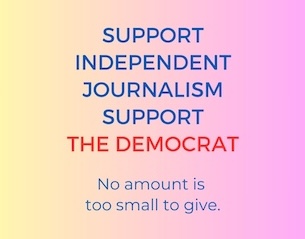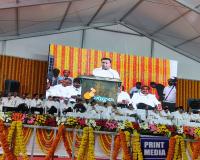- More
- Poor Financial Performance Expected by Automotive Dealer Fraternity in India, J.D. Power – F A D A
Poor Financial Performance Expected by Automotive Dealer Fraternity in India, J.D. Power – F A D A Finds
SINGAPORE — More than one-fifth (21%) of dealers across the three automotive segments―passenger vehicle, two-wheeler and commercial vehicle―expect their financial performance to be poorer in the recently concluded financial year compared with the previous year, according to the J.D. Power – F A D A 2019 India Dealer Satisfaction with Automotive Manufacturers Index (DSWAMI) StudySM, released

SINGAPORE — More than one-fifth (21%) of dealers across the three automotive segments―passenger vehicle, two-wheeler and commercial vehicle―expect their financial performance to be poorer in the recently concluded financial year compared with the previous year, according to the J.D. Power – F A D A 2019 India Dealer Satisfaction with Automotive Manufacturers Index (DSWAMI) StudySM, released today.
The study conducted by J.D. Power, in partnership with the Federation of Automobile Dealers Associations (F A D A) India, finds that among those who expect a poorer performance this year, 71% say that they did not achieve their revenue target for the year. Furthermore, more dealers this year indicate their revenue will be below target (36% this year vs. 33% last year).
“The automotive industry, especially the passenger vehicle and two-wheeler segments, are facing serious headwinds due to several external challenges on the revenue side,” said Kaustav Roy, Director and Country Head, India at J.D. Power. “Additionally, an increase in the cost of doing business have also affected the dealers’ outlook and financial performance. Strategic use of the various business levers, with a strong focus on customer retention, hold the key to long-term sustainability.”
“Dealership business is facing its toughest challenges in recent times and the entire business model needs an overhaul to keep up with the changing dynamics of our trade. This is the first joint survey between J.D. Power and F A D A and we have received a high number of responses from our members. We are hopeful that the findings of the survey will act as a beacon for the entire automotive ecosystem, leading towards a healthier business environment for the Industry, especially for the automotive dealer fraternity at large,” said Ashish Harsharaj Kale, F A D A President.
Following are additional key findings of the 2019 study:
- Digitalization will lead the way: Online purchase of vehicles is seen as an important future trend by almost one-third (31%) of all dealers across the three segments. In addition, 43% of dealers believe that investment in digitalization is likely to bring about a reduction in manpower costs for their business.
- Dealers want more collaboration: One-in-ten (10%) dealers feel that it is not easy to do business with their original equipment manufacturer (OEM). These dealers have satisfaction scores that are, on average, 247 points (on a 1000-point scale) lower than those who find it easy to do business with their OEMs.
- Satisfaction drives loyalty and advocacy: On average, 85% of dealers believe that they “definitely will” continue to work with their automaker for the next two years. Among dealers in the top quartile of satisfaction, 97% expect to be working with the same automaker until at least 2021. In contrast, among dealers who rate their experience with the automaker in the bottom quartile of satisfaction, only 66% expect to be working with the same automaker for the next two years.
Study Rankings
Hyundai ranks highest in the passenger vehicle segment, with a score of 937. Maruti Suzuki (918) ranks second.
TVS ranks highest in the two-wheeler segment, with a score of 800, and Hero (799) ranks second.
In commercial vehicle segment, Tata ranks highest with a score of 773, followed by Eicher (760).
Now in its ninth year, the India DSWAMI Study measures dealer satisfaction with vehicle manufacturers or importers in India and identifies dealer attitudes regarding the automotive retail business. Overall dealer satisfaction is determined by examining nine factors (in order of importance): marketing and sales activities; support from the manufacturer; product; training; sales team; vehicle ordering and delivery; after-sales team; parts and warranty claims.
The 2019 study is based on responses from 2,448 dealer principals or dealership general managers located in more than 200 cities throughout India. The study was conducted in partnership with the Federation of Automobile Dealers Associations (F A D A) and was fielded from January through April 2019.











